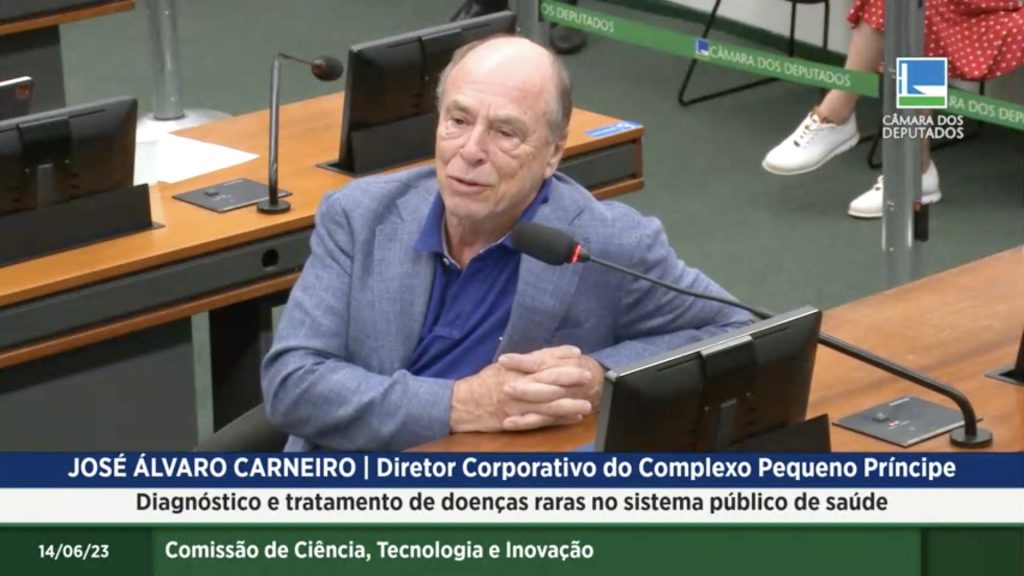Director of Pequeno Príncipe advocates more resources for the treatment of rare diseases
The breakthrough achieved by medicine from genomics can provide improvements in diagnosis and treatment, but costs are still a challenge

The corporate director of the Pequeno Príncipe Complex, José Álvaro da Silva Carneiro, advocated the allocation of more resources for the diagnosis and treatment of rare diseases in the Brazilian Public Health System (SUS, abbreviation in Portuguese), during the public hearing held in the House of Representatives last June. The meeting was an initiative of the Commission for Science, Technology, and Innovation of the House, chaired by Congresswoman Luisa Canziani, with the aim of discussing the possibility of incorporating new technologies into the SUS, which favor the diagnosis and treatment of these diseases.
Data presented at the meeting show that, currently, Brazil has 13 million people with rare diseases, which represent a cost four times higher for the health system. According to Congresswoman Luisa Canziani, “given the high cost of diagnoses and treatments, it is essential to seek innovative solutions to provide better quality of life for patients, especially within the public health network.”
The advances provided by science, through genetic testing and personalized medicine, can bring great benefits to these patients, but the costs are still a huge challenge for the SUS. A complete exam, for example, costs from US$ 1,000 to US$ 1,600. However, hospitals are paid only US$ 160 to treat these patients through the SUS. The resources provided for in the ordinance are focused on diagnosis with coverage for consultations and some types of exams, leaving the entire therapeutic approach without budgetary support. That is, it is financially impossible to offer these new technologies to SUS patients with the remuneration that the system provides to hospitals.
“In 2016, when we were accredited to provide care for rare diseases in a pioneering way in Brazil, we began to receive around US$ 8,200 per month to remunerate the team. However, the team that is involved in the care is made up of 21 doctors from ten specialties and eight professionals from complementary services, such as nutritionists, psychologists, social workers, nurses, among others,” reported Carneiro.
Another point highlighted by the corporate director was the need to advance in the availability of infrastructure and training of personnel to work in bone marrow transplants (BMT) for rare diseases. Pequeno Príncipe has the greatest experience in Latin America in this type of transplant – which, in many cases, represents the cure of patients. In the first half of this year alone, of the 32 BMTs performed at the Hospital, 14 were in patients with rare diseases.
Since the accreditation of the Pequeno Príncipe’s service as a reference for the SUS, in 2016, until the first semester of this year, the Hospital has performed about 7,800 consultations related to rare diseases in 1,900 patients, reaching more than 1,000 diagnoses. “It is very complex to disclose a diagnosis of a rare disease to a family without being able to offer a treatment that brings real benefit to the child,” he states.
More
The Research Institute team is part of a national pediatric oncology research network
Mobilized by the Ministry of Science, Technology, and Innovation, the network will act to contribute to the increase in childhood cancer cure rates
Pequeno Príncipe Neurology Service completes 40 years
The institution has one of the most complete services in Brazil in the field of pediatrics
New equipment for cardiopulmonary bypass increases the safety of cardiac surgeries
State-of-the-art machines widely used in the United States and Europe were acquired by Pequeno Príncipe with funds donated by the State Government









